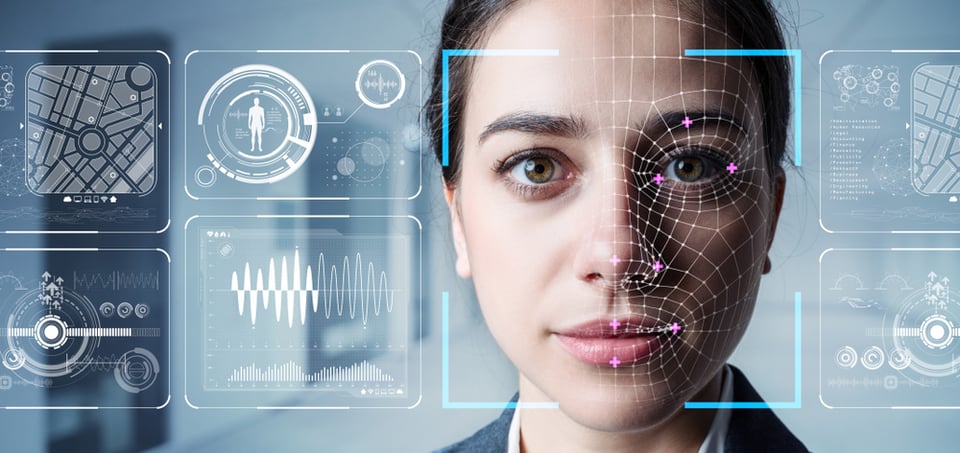How Facial Authentication Can Transform Hotel Guest Experiences
Facial authentication in hotels and guest facilities has been a hot topic for the past few years. Back in 2019, which seems like a lifetime ago now, hotels across Singapore began testing facial authentication which enabled tourists to verify their identity at check-in. Estimates at the time stated this could reduce the time guests spent checking in by as much as 70%.
But it has been the pandemic that truly accelerated the technology’s implementation, with the entire hospitality industry now understanding the importance of innovation for greater speed, safety, and ultimately, an enhancement of the guest experience.
A recent study from BizVibe confirmed that facial authentication check-ins are a major trend for the travel arrangement and reservation services industry, with North America, Europe, and Asia-Pacific leading the way. And there’s no wonder why: McKinsey recently confirmed that in 2020, Americans’ preference for contactless options increased by 20%.
In fact, facial authentication now benefits diverse processes across the entire guest journey. In this article, I’ll explore some of the ways that this technology is achieving this.
Powerful Touchless Access
Check-in, check-out, access to floors or facilities, or even elevator activation are some of the potential applications of facial authentication in the hotel industry that advance a better, more frictionless experience. This is done by creating a digital profile for each guest upon booking through a virtual wallet to a facial authentication system. Guests simply need to take a selfie during the booking process to set this up.
With kiosks or mobile phone check-in, industry experts estimate that just the reduction in time spent waiting in line and registering in-person will translate to more than 11,000 hours saved annually for larger hotels. Such a huge time saving will of course enable front-of-house hotel staff to focus on higher-value tasks instead of manually keying data during outdated check-in procedures.
Facial authentication can also provide a sense of comfort and safety. Its touchless aspect is attractive for guests concerned about pandemic-related health risks.
When weighing the potential benefits of using a self-service kiosk, respondents in a study specifically highlighted faster service (61%), shorter lines (59%), privacy (58%), greater control (50%), and eliminating unnecessary interactions with personnel (38%).
Payments Confirmed in Milliseconds
Companies such as MasterCard have already begun implementing facial authentication systems that allow customers to pay using the camera on their phone or a camera supplied by the vendor. App stores also now enable users to authorize purchases by scanning their faces using their phone camera. The potential of such seamless payment processing is immense in the hotel industry, too.
The traditional long lines that await guests when entering the restaurant for breakfast, as staff tick off their names and room number against a printed list, can be completely eliminated. All that’s required is a quick glance at a camera as they enter the dining room.
And attributing bar receipts and other costs onto the wrong guest account - something that always causes a negative guest experience and a conflict that hotel staff need to skillfully resolve - is also avoided.
According to a PWC survey from 2019, 70% of millennials are likely to book holiday accommodation using a tech amenity such as mobile payments – which shows a clear demand for this type of technology among the largest cohort of today’s tourists and travelers.
Across the guest journey, payments traditionally represent touchpoints that create an unnecessary backlog for staff, as well as prolonged wait times for guests. Facial authentication empowers guests to be in control, completing a simple purchase without any physical interactions, and adding no extra work for hotel staff.
Hyper-Personalization for Every Guest
It’s no secret that nearly all consumers today expect some level of personalization in the products and services they purchase. In this sense, facial authentication deployed within hotels can act as a springboard for hyper-personalization efforts.
When guests check-in using the self serve kiosks, enabled by facial authentication, the greeting, information provided, and even the color scheme of the user interface can be completely customized for each guest, based on their preferences.
This personalization can be extended further throughout the guest's journey. Within hotel restaurants, for example, guests can be presented with their most frequently ordered items within digital menus.
Furthermore, facial authentication can power modern loyalty programs. For example, a hotel chain can prepare a personalized welcome gesture at different locations and add loyalty points to their profile without any extra hassle. What’s more: In a globalized world, attending to the diverse personal choices, language preferences, or even dietary regimes is vital to elevating the guest experience. Therefore, having this information and matching it with a specific guest is a much-needed asset.
We’ve only begun scratching the surface in terms of the improvements that facial authentication can deliver to the hotel guest experience. Expect to see plenty more hotel chains start to make investments in this technology over the medium term, as brands seek to leverage the early-mover advantage this can bring in today’s ultra-competitive hospitality industry.
ABOUT THE AUTHOR
Written by Sanjay Manandhar, CEO & Co-Founder of Wicket, a facial authentication platform that utilizes patented computer vision technology to revolutionize visitor management and the guest experience.






